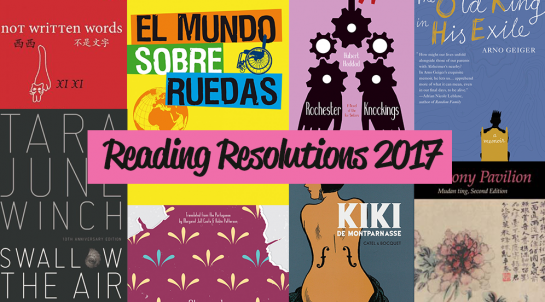This September, we interrupted our usual blog programming to celebrate Asymptote’s 30 issues since our debut in January 2011 and draw awareness to National Translation Month while we are at it! Whether you discovered Asymptote early on or just recently, we invite you to join us as we retrace the steps that brought us here. Beginning with the inaugural Winter 2011 issue, we will work our way chronologically through the archive, weighing in both as editors, shedding new light on how our editions are assembled, and as readers, drawing connections within each issue. Finally, don’t forget that you too can play a part in catalysing the transmission of world literature: share this #30issues30days showcase (and the actual issues themselves) far and wide!
—Lee Yew Leong, Editor-in-Chief
Revisit every issue before reading about our 30th issue below:
- #1 Winter 2011: Asymptote‘s Origin Story
- #2 Spring 2011: Out of the Void
- #3 Summer 2011: Our First Great Issue
- #4 Fall 2011: The Pleasure of Literary Engagement
- #5 Winter 2012: A Giant Nipple on Our Cover
- #6 Spring 2012: Why Asymptote Matters
- #7 Summer 2012: A Funny Thing Happened On My Way To Editing a Journal of World Literature
- #8 Fall 2012: A Whirlwind Blend of Poetry, Fiction, Loud-mouthed Drama, and Phantasmagorical Art
- #9 Winter 2013: The Journal That Never Sleeps
- #10 Spring 2013: A Singular Experience
- #11 Summer 2013: What a Tentative, Unruly Enterprise Language Is
- #12 Fall 2013: Translators Talk to Us
- #13 Winter 2014: A Rookie Among Giants
- #14 Spring 2014: The Space Between Languages
- #15 Summer 2014: The Tip of a Vast Iceberg
- #16 Fall 2014: Interlinked Dimensions of Spacetime
- #17 Winter 2015: We Almost Didn’t Make It
- #18 Summer 2015: The Wonders of Travelling To and From Different Languages
- #19 Fall 2015: Taking the Spaceship Back
- #20 Winter 2016: Gifts
- #21 Spring 2016: Going Places
- #22 Summer 2016: In-Between Times
- #23 Fall 2016: A Fresh Opportunity to Talk
- #24 Winter 2017: Intimate Strangers
- #25 Spring 2017: Fighting the Muslim Ban
- #26 Summer 2017: New Words Usher Forth New Worlds
- #27 Fall 2017: The Last Space For Resistance
- #28 Winter 2018: A Treasure Hunt Without a Map
- #29 Spring 2018: The Dogged Chase of the Actual After the Ideal




